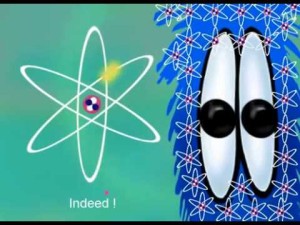We mark the universe. We impress it, or “stamp” it, or imprint it with our own identity. Henceforth it always recognizes us as us and no other. We are known.
In larger terms, while we speak our own language, the universe also speaks “our” language as it constantly translates itself into our private perception. We live in our psyche somewhat in the same way that physically we dwell in the world.
That world has many languages. Physically we are like one country within our psyche, with a language of our own. People are always searching for master language, or for one in particular out of which all others emerged. In a way, Latin is a master language. In the same manner people search for gods, or a God, out of which all psyche emerged. Here we are searching for the implied source, the unspoken, invisible “pause,” the inner organization that gives language or the self a vehicle of expression. Language finally become archaic. Some words are entirely forgotten in one language, but spring up in altered form in another. All of the earth’s languages, however, are united because of characteristic pauses and hesitations upon which the different sounds ride.
Even the alterations of obvious pauses between languages make sense only because of an implied, unstated inner rhythm. The historic gods become equally archaic. Their differences are often obvious. When we are learning a language, great mystery seems involved. When we are learning about the nature of the psyche, an even greater aura of the unknown exists. The unknown portions of the psyche and its greater psyches out of which the self emerged — as for example Latin is a source for the Romance Languages.
Using language, we speak with our fellows. We write histories and communications. Many books are meant to be read and never to be spoken aloud. Through written language, then, communication is vastly extended. In direct contact, however, we encounter not only the spoken language of another, but we are presented with the communicator’s person as well. Spoken language is embellished with smiles, frowns, or other gestures, and these add to the meaning of the spoken word.
Often when we read a book we silently mouth the words, as if to reinforce their symbolic content with a more emotional immediacy. The language of the psyche, however, is far richer and more varied. Its “words” spring alive. Its “verbs” really move, and do not simply signify, or stand for, motion.
Its “nouns” become what they signify. Its declensions are multi-dimensional. It verbs and nouns can become interchangeable. In a way, the psyche is its own language. “At any given time,” all of its tenses are present tense. In other words, it has multitudinous tenses, all in the present, or it has multitudinous present tenses. Within it no “word” dies or becomes archaic. This language is experience. Psychically, then, we can and we cannot say that there is a source. The very fact that we question: “Is there a God, or a Source?” shows that we misunderstand the issues.
In the same manner, when we ask: “Is there a master language?” it is apparent that we do not understand what language itself is. Otherwise we would know that language is dependent upon other implied ones; and that the two, or all of them, are themselves and yet inseparable, so closely connected that it is impossible to separate them even though our focus may be upon one language alone.
So the psyche and its source, or the individual and the God, are so inseparable and interconnected that an attempt to find one apart from the other automatically confuses the issue.






